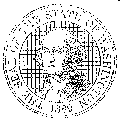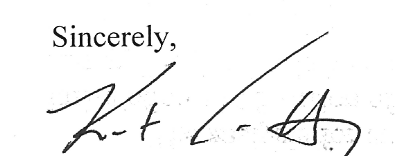Note: This letter is as received from the Commission of Judicial Conduct.
The actual scanned text (slower to download and harder to
search and read) is also available.
The context for this letter can be found at:
http://brian.carr.name/legal.htm.

STATE OF WASHINGTON
COMMISSION OF JUDICIAL CONDUCT
P.O. BOX 1817, Olympia, WA 98507
(360) 753-4585 FAX (360)586-2918
June 25, 2007
CONFIDENTIAL
Brian Carr
11301 NE 7th St., Apt. J5
Vancouver, WA 98684
Re: Complaint No. 5079
Dear Mr. Carr:
This letter is in response to your e-mail to me on June 23rd. The Commission originally dismissed
your complaint at its meeting on August 4, 2006. The commission members who deliberated on your
complaint at that meeting were: Antonio Cube, Wayne Ehlers, Larry Goldberg, Hubert Locke, John Erlick,
Margaret Ross, John Schultheis and John Sleeter. The complaint was "dismiss[ed] as legal."
The analysis for such a determination is complicated and reflects a fundamental limitation of the
jurisdiction and function of the Commission. Generally, allegations that a judge (or judges in your case)
misapplied the law is beyond the purview of the Commission's function. The issue of whether a judge's
decision was legally correct is separate from the issue of whether the judge acted in accordance with the
Code of Judicial Conduct. The Commission has no authority to act as a court of review, determining the
legal or factual validity of any judge's decision. Absent some objective evidence of improper influence or
motive, the Commission cannot take action based on the legal decision made by a judge, even in cases where
it might appear that decision was incorrect. Dissatisfaction with a legal decision must be remedied through
the legal process, which is separate from the Commission's jurisdiction.
The closure of your complaint does not demonstrate an opinion by the Ccmmission that there was
no legal error in your case. (Neither does it show that the Commission believed there was legal error.)
Whether a judge has made a legal error is frequently a question on which disinterested, legally trained people
can reasonably disagree. The dismissal simply means that the Commission members concluded there was
not the kind of evidence of an ethical violation (as opposed to supposed misapplication of a law) that would
lead to the filing of public charges.

Kurt C. Twitty
Senior Investigative Counsel
This page was last updated on July 29, 2007.


